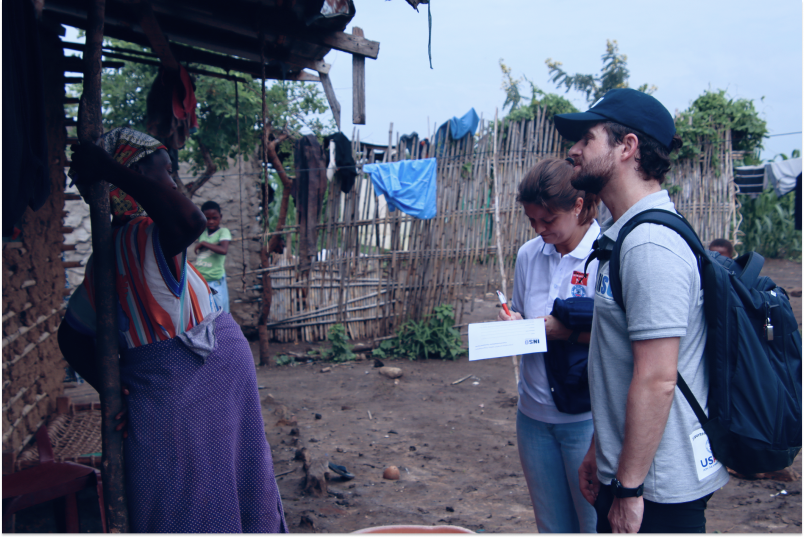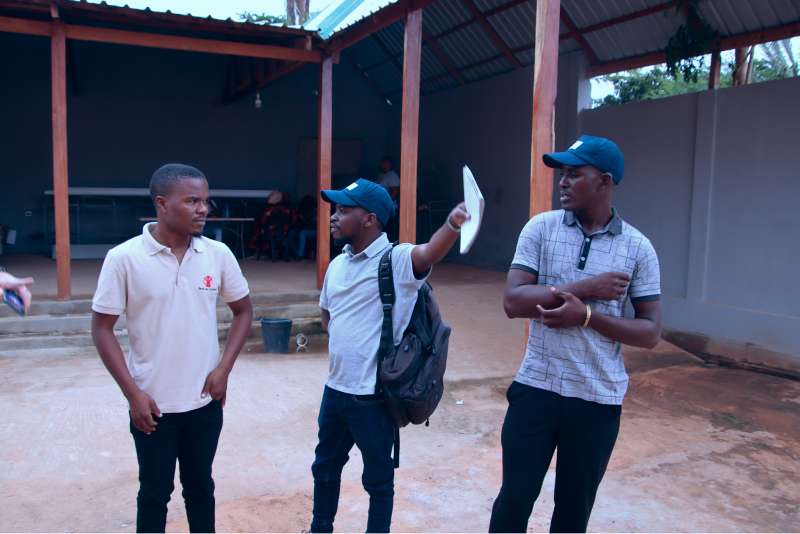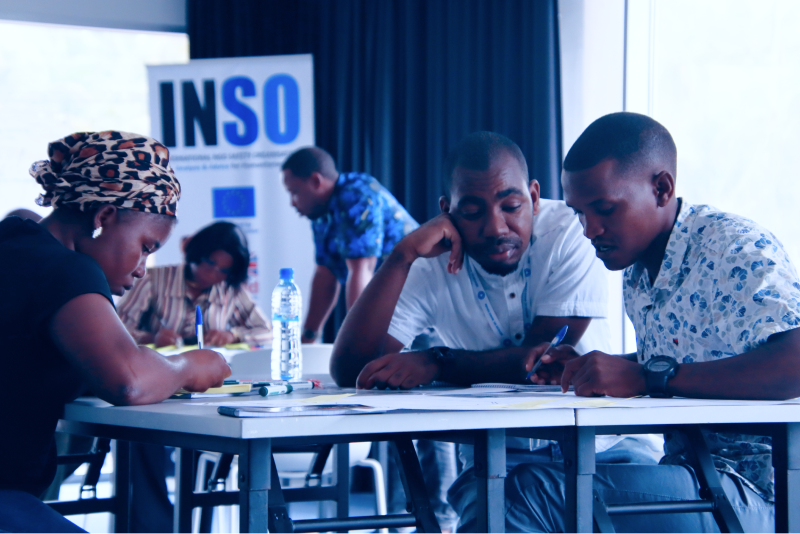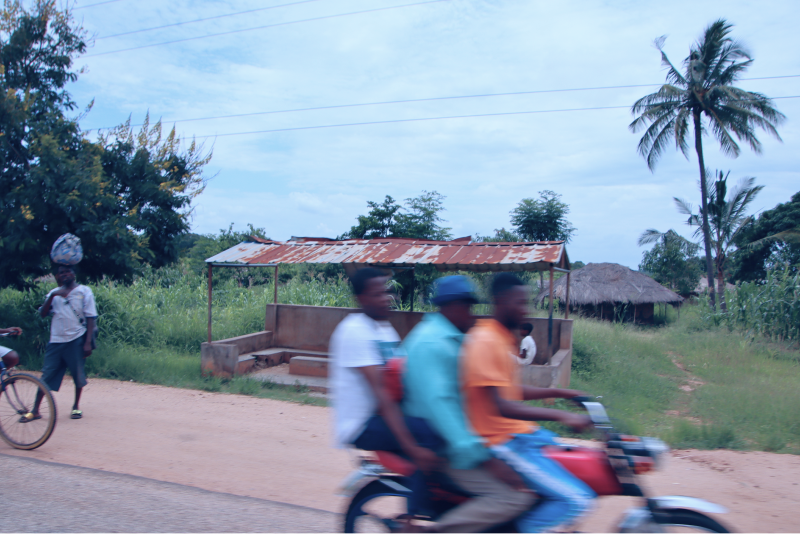Since 2017 when the first attacks of the current conflict began in the north of Mozambique, at least 4,000 people have been killed and one million more have been displaced. Attacks most frequently occur in Cabo Delgado province, though conflict seems to be spreading.
This same region also faces long-term development challenges, including high youth unemployment and poor access to education. Many NGOs which have been addressing these development needs for decades have been forced to face an evolving security context.
Development during conflict
“The situation in terms of safety has changed a lot,” explains Maria Sacchetti, Country Director for MENTOR Initiative. Maria has worked in Mozambique several times over the last decade. She has seen the impact of conflict on communities and the transition for NGOs from development to humanitarian aid.
“The information and planning that NGOs had [when the conflict first started] about safety and security on movements to the districts were limited,” she says.
Because most NGOs at that time were focused on development activities, they were not experienced or equipped to deliver aid in what was becoming an insecure environment. Though many of these NGOs decided to stay, adjusting their activities to include humanitarian assistance, limited information and frequent attacks meant backing out of some locations.
Marilia Heidemann, Ariel Glaser’s Provincial Director for Cabo Delgado, describes how the conflict has affected her staff and operations.
“Before the conflict started, we were in all 15 districts. Now we are physically present in only six” She recalls how stressed her staff working in areas closest to attack locations were. “My staff were sleeping with bags, thinking, ‘When are we going to need to flee?’.”

INSO Deputy Director in Mozambique, Benjamin Kaufman, talks to a woman outside her home in Metuge, Mozambique.
Building confidence to act
For development NGOs, switching to a mindset that considers security as well as access has been challenging. Navigating a context where both conflict and administration can make access more restrictive is not easy, as Marilia explains.
“We know that the risk remains for there to be an attack – so we are now developing plans focused on what we should do and how we can keep our staff safe.”
INSO helped Marilia to develop these, including by reviewing her organisation’s contingency plans. INSO’s support was especially useful, Marilia shares, as these plans were based on a natural hazard rather than a conflict event.
“We had a plan but it wasn’t adjusted to the conflict situation. INSO’s help was a huge relief.”
For Maria, it is information from INSO that has helped MENTOR to quickly restart and expand its operations after sporadic attacks led them to suspend some activities.

INSO staff and an NGO worker during a site security review in Chiure, Mozambique.
“In June and July last year, when attacks started in the south of [Cabo Delgado], we had very limited and not always verified information,” says Maria. “We had to stop our operations and movements in those areas. When INSO came, it was very good for us as we now have updated and reliable information every day.”
Her organisation is now working again in some of the areas where they had stopped, using INSO’s reports and alerts to inform movements and activities.
Influx of aid brings new challenges
There are currently around 300 NGOs in Mozambique. Since INSO launched in Mozambique in 2022, two serious NGO incidents have been recorded: both involving the killing of NGO staff while off duty during an ambush.
Despite the relatively low number of serious incidents, INSO Deputy Director Benjamin Kaufman says risks remain to NGOs in the context which has experienced a surge of international actors seeking to address increased humanitarian needs.
“While we believe that this incident was not a targeted attack based on the victim’s humanitarian profile, the risk of NGOs being collaterally affected by attacks remains high,” says Benjamin. “The relatively recent influx of humanitarian actors means that perceptions of NGOs by groups and authorities in Northern provinces are arguably still forming.”
He says that these perceptions play a significant role in the acceptance of NGOs in the region. For this reason, coordination is important – which is where INSO’s regular roundtables and Country Director meetings come in. During these meetings, both long-term development NGOs and more recently arrived humanitarian NGOs can come together.
Laura Morisio from AVSI, a development NGO, says this is beneficial both kinds of organisations:
“We share our processes, knowledge of the system and the context, and they share with us the way they organise and their expertise in terms of security. It’s mutual learning.”
Justine Muzik Piquemal, Geographic Director with Solidarités International, participates in the roundtables and has also seen the benefit of these meetings.
“The biggest thing is that [these meetings] allow actors who have worked here a long time ago and who never had a security mindset to actually have a meeting, sit together, bring their own perspective and listen to other perspectives as well,” says Justine.
“So that’s a really good thing – bringing the community together, and basically creating a security community.”

In Mozambique, INSO provides safety and access training in English and Portuguese.
Volatility remains, but NGOs are prepared
Humanitarian needs do not appear to be decreasing, while sporadic conflict continues. For NGOs whose staff are less familiar with working in a conflict environment, INSO’s trainings on safety and access – available in Portuguese and English – are building internal capacities.
Maria says that finding fit-for-purpose training for her staff was difficult before INSO’s arrival.
“It was very hard to find safety and access courses in Portuguese for national staff. Now most of our team have received basic training on safety and security from INSO.”
INSO is continuing to increase its capacity to support partners in Mozambique, and Marilia says INSO’s support has become a fundamental part of being able to safely continue to assist people in need.
“If we are taking care of the population, but we do not feel safe … It is difficult. If we decide not to go to certain places or to back off, it is the population who suffers.
“INSO is showing us the right way to still offer help to the population, but with less stress and the right information to take decisions.”
INSO operates from a country office in Maputo and monitors the North from a field office in Pemba. Our work in Mozambique is supported by USAID’s Bureau of Humanitarian Assistance, the European Commission (ECHO) and the United Kingdom’s Foreign, Commonwealth & Development Office.

